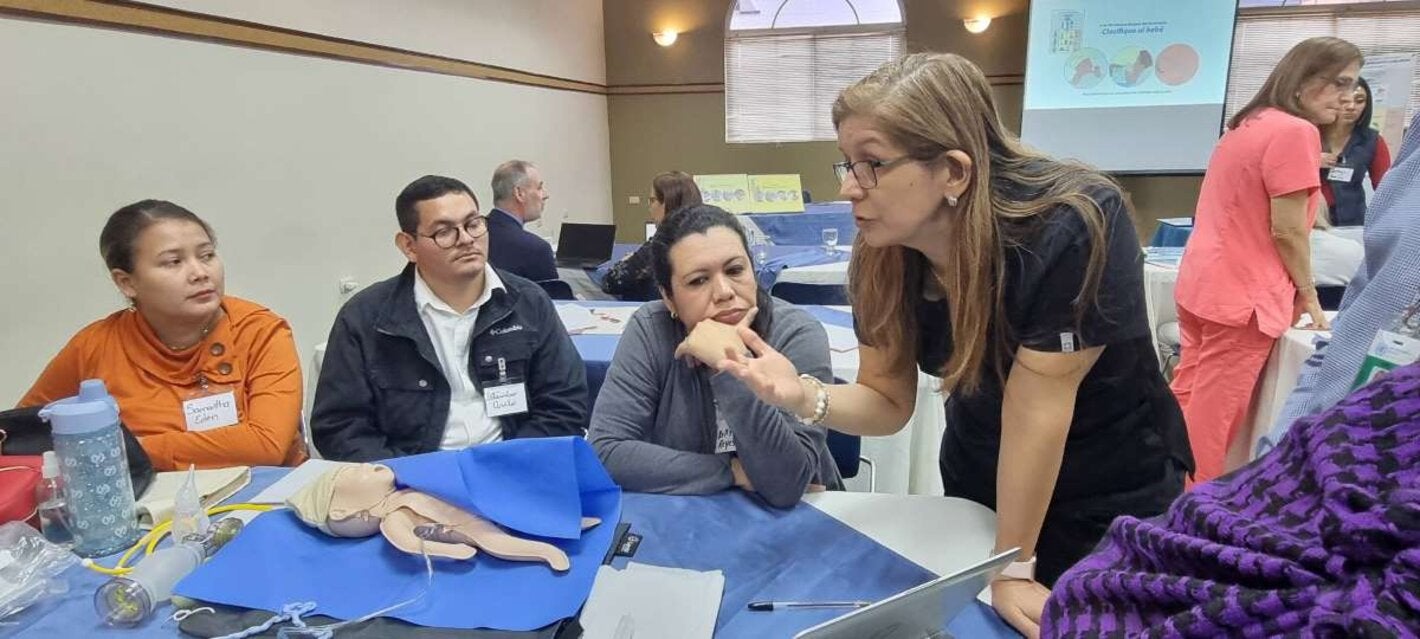
Tegucigalpa, Honduras, 20 June 2023 - The Honduran Ministry of Health, the Pan American Health Organization/World Health Organization (PAHO/WHO) and the Latin American Centre for Perinatology, Women's and Reproductive Health (CLP/WR) have joined forces to strengthen maternal health and reduce perinatal and neonatal mortality in Honduras.
Leading experts, including Dr. Pablo Durán, Regional Perinatal Health Advisor for CLP/WR, along with consultants Dr. Lilian Macías and Dr. Karen Marthe, have provided invaluable experience and expertise to drive the development of effective strategies for perinatal and neonatal care in Honduras. The objectives of this mission include:
- To provide training of trainers in essential newborn care, sick newborn care and the "golden minute" to members of the health care team.
- Analyse with authorities and technical teams the programme frameworks aimed at achieving national, regional and global goals and commitments.
- Formalise the formation of the Neonatal Alliance of Honduras.
Mortality during the perinatal period represents a significant contribution to infant mortality, with neonatal mortality accounting for more than 60% of infant deaths on average. Complications and adverse events that occur during this period are related to determinants that are involved from before birth, with consequences that affect long-term health and quality of life, including disability and death.
In Honduras, the main causes of mortality in the perinatal and neonatal period are prematurity, congenital defects, sepsis and infections, and perinatal asphyxia. It is essential to work on these determinants and implement effective interventions to reduce their impact and achieve the targets set in terms of maternal and newborn health.
The Ministry of Health, CLP/WR and PAHO/WHO Honduras recognise the importance of skilled and committed health teams, as well as responsive, accessible and culturally sensitive health services. In addition, they emphasise the participation of decision-makers and other key actors, such as cooperation agencies, civil society organisations and scientific societies.
In the framework of the project "Improving the Health of Women and Adolescents in Situations of Vulnerability", financed by the Government of Canada and led by PAHO/WHO, the intervention has been prioritised in 6 health regions of Honduras: Santa Bárbara, Cortés, Francisco Morazán, Intibucá, Atlántida and Gracias a Dios. The project aims to strengthen equitable access to integrated and rights-based health services and to empower women and adolescents in relation to their sexual, reproductive and maternal health.
This work reflects the commitment of the Ministry of Health, CLP/WR and PAHO/WHO in Honduras to improve maternal and newborn health, as well as to promote quality, equitable and accessible services for women and adolescents. The workshop represents an important step towards achieving these objectives by strengthening training, knowledge sharing and collaboration between experts and health authorities.



